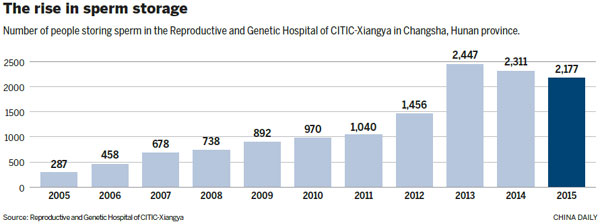
In these cases the sperm bank directors and others working in the field are far less categorical in their views on what then becomes an incredibly complex matter.
And yet the scientific process at the heart of this issue is not that complicated at all, essentially storing a donor's sperm at extremely low temperatures and leaving it in a state of hibernation, ready to be put into service weeks, months or years later.
In Australia a boy was born last June after in vitro fertilization treatment using sperm put into storage almost 23 years earlier by his then 15-year-old father who had been about to undergo chemotherapy treatment for cancer. In a similar case in Manchester, England, in 2004 a baby was born after sperm was kept for 21 years in what is called cryopreservation.
These two cases fall within the boundaries that may be a comfort zone for many ethicists and others, but as the march of science continues, these boundaries may be moving inexorably too.
In the United States last month the Defense Secretary, Ashton Carter, announced that the military will cover the fees for active-duty members to freeze sperm and eggs, as part of a pilot program. At the height of the wars in Iraq and Afghanistan some cryogenic companies offered to cover the cost of troops who wanted their reproductive cells frozen, the New York Times says.


























 Raymond Zhou:
Raymond Zhou: Pauline D Loh:
Pauline D Loh: Hot Pot
Hot Pot Eco China
Eco China China Dream
China Dream China Face
China Face






